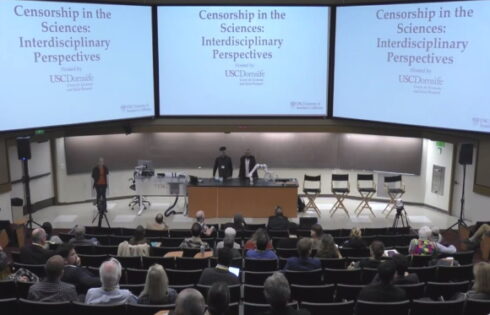
But how likely is it?
At Inside Higher Ed this week, Emily Chamlee-Wright argues that “we could all do a better job of assuming good faith” when engaging in on-campus debates. Good faith, as she points out, means “we expect that our conversation partner is interested in learning from us and is seeking to understand our point of view. It means that we should assume, unless we have good evidence to the contrary, that their intent is not to deceive or to offend.”
This is an eminently reasonable and commendable thing to desire. Getting there will probably take some time. The concept of “good faith” in campus politics has been more or less entirely corroded in recent years, goaded on by campus activists who assume that everyone who doesn’t agree with them is a literal fascist Nazi. That kind of weaponized activism has resulted in a staggering climate of fear and self-censorship: Recently, one outspoken professor under attack by campus agitators revealed that hundreds of students were afraid to come to his defense. At another university, 75 percent of campus conservatives are “in the political closet” for fear of being targeted by campus liberals.
Steering the campus debate toward “good faith,” in other words, is more or less the responsibility of campus progressives, who—if it needs to be restated—are the ones who got us here in the first place. There are surely unfair and disingenuous campus conservatives, of course, and they have to be willing to drop the act as well. But the issues surrounding American campus political climates come almost entirely from the left end of the political spectrum. Fixing this mess is a matter of fixing campus liberalism, which tends to assume a priori that any non-campus liberal is at best untrustworthy and at worst pure evil. This should stop.
A few suggestions: Don’t assume that people who are skeptical of gender-neutral bathrooms are “transphobic.” Don’t apply the label “white supremacist” to every white person with whom you have a disagreement. Stop accusing people of nefarious, bribe-induced motives because they oppose your fossil fuel divestment scheme. Taking people on “good faith” means giving them a chance to make their case without your suggesting they are genocidal racists. It’s not hard to avoid this; you can start right away.
MORE: Anarchist group threatens to dox freshmen if they join conservative clubs
IMAGE: areebarbar / Shutterstock.com
Like The College Fix on Facebook / Follow us on Twitter






Please join the conversation about our stories on Facebook, Twitter, Instagram, Reddit, MeWe, Rumble, Gab, Minds and Gettr.